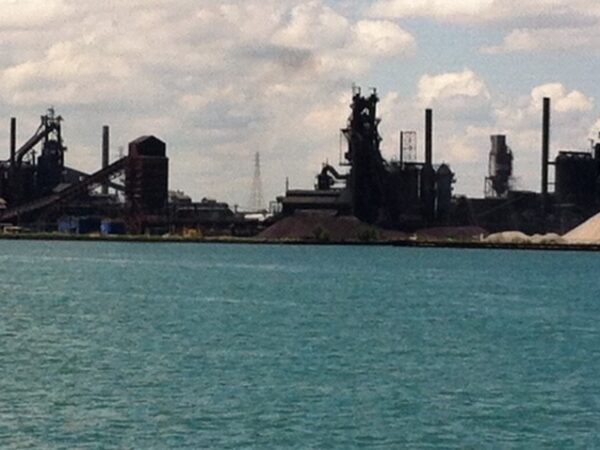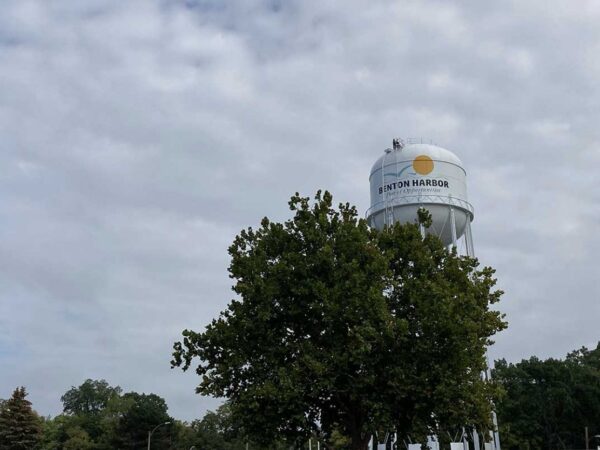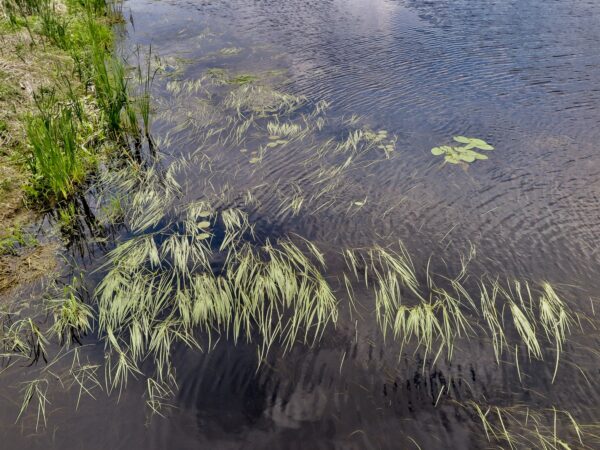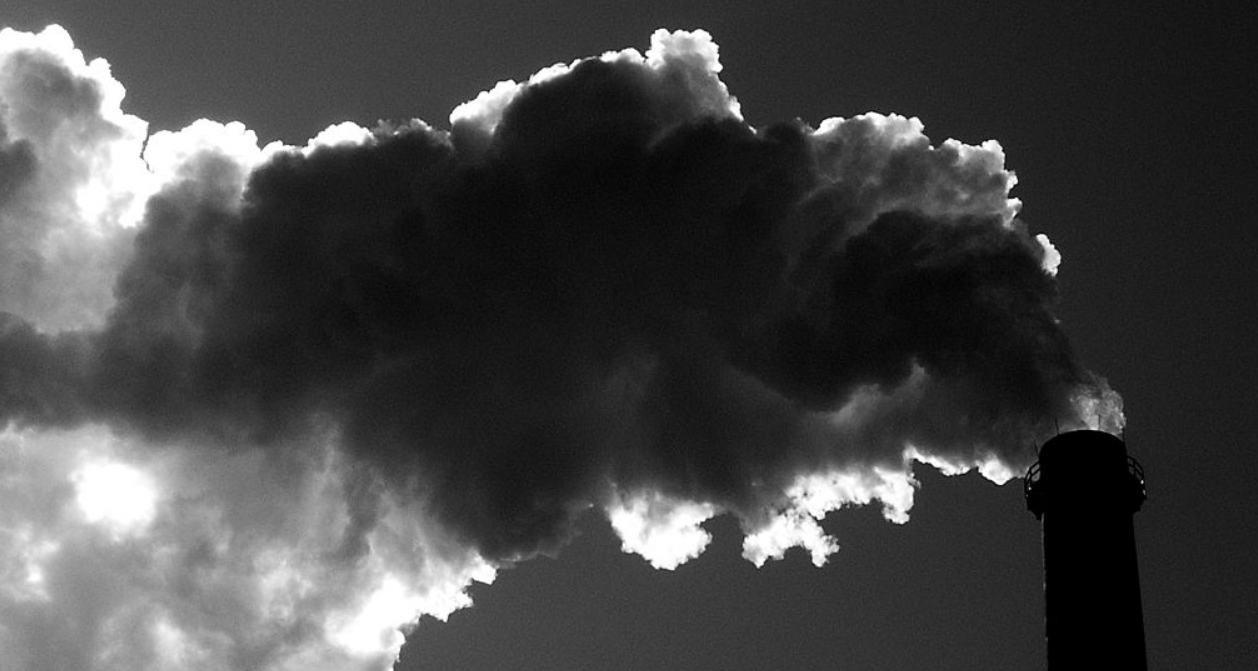
Activists say “whack-a-mole” actions are inadequate
The City of Chicago last month took another step on a long path to protect citizens from “fugitive dust” that can blow into neighborhoods from nearby industrial storage facilities on its embattled Southeast Side.
The culprit this time is manganese.
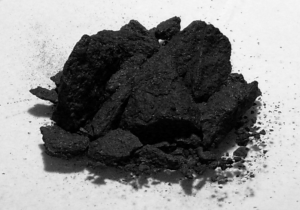
Manganese (Mn), courtesy of Ondřej Mangl
While an essential nutrient, inhaling large quantities of manganese dust can negatively impact the nervous system and lead to lung irritation and pneumonia.
In children, “high levels of manganese exposure may produce undesirable effects on brain development,” according to the Agency for Toxic Substances and Disease Registry.
Last month Chicago, via its Department of Public Health (CDPH), ramped up regulatory actions on two companies – S.H. Bell and Watco Transloading – to ensure manganese dust does not leave their facilities and travel to nearby neighborhoods, the city said in a press release.
S.H. Bell, producer of the manganese, agreed to no longer store the product outdoors and will suspend loading during high winds. Watco Transloading was denied a variance – a special exception – from requirements to monitor air quality.
“Today’s actions are emblematic of our ongoing commitment to protect the health of every resident in every neighborhood,” Mayor Rahm Emanuel said.

10th Ward Alderman Susan Garza, courtesy of aldssg.com
Emanuel used the occasion to poke at President Trump’s recently appointed regional EPA Administrator, Cathy Stepp. He said that while she had a track record of “environmental ambivalence,” Chicago will strictly enforce environmental regulations. Stepp’s office is in Chicago.
The manganese dust issue is in the ward of Alderman Susan Garza and she said in the CDPH release that the message is clear, “it is unacceptable for companies to do business in Chicago that negatively affects the health of residents.”
“Whack-a-mole”
The manganese issue is just one that has surfaced on the Southeast Side and was discovered almost by accident.
The neighborhood was plagued by storage of petroleum coke – pet coke – another fugitive dust culprit and air quality monitors installed to monitor pet coke detected manganese drifting into the community.
It’s “a game of whack-a-mole” Josh Mogerman from the Natural Resources Defense Council’s Chicago office told Great Lakes Now.
“The community has to continually address contamination in their midst. They beat back one threat only to expose others.”
NRDC has long-been involved in Southeast Side environmental issues providing technical and legal support to the community.
Mogerman says recent regulation and enforcement action by Chicago demonstrate progress and he credits the residents who identified the issue then “mobilized and ultimately forced important new rules onto the books in Chicago.”
End game?

Olga Bautista, Co-founder of the Southeast Side Coalition to Ban Petcoke, courtesy of luc.edu
In a recent letter to Chicago Mayor Emanuel obtained by Great Lakes Now, a coalition of Southeast Side activists asked that the city focus on solutions broader than reactive regulations that take years to implement and require ongoing enforcement.
Noting Emanuel’s leadership on climate change and that the federal government is “sitting down,” the coalition called for establishment of a “greener economic corridor” on the Southeast Side.
The letter said that a “green Chicago” would be one focused on “sustainable living” where citizens have input on new industry before they are permitted.
Specifically, they called for revisions to the zoning process for industrial operations so “residents have a voice on the front end of the process to determine what industry is located in their community.”
Great Lakes Now asked Southeast Side Alderman Susan Garza if her goal, and the city’s, is to eventually prohibit storage of industrial waste like pet coke and manganese in neighborhoods and the city.
Garza’s office did not respond to multiple requests to comment.
And what about the U.S. EPA’s role?
Mayor Emanuel’s political swipe at the Trump administration over the appointment of Cathy Stepp aside, the Scott Pruitt EPA has clearly deprioritized regulation and enforcement. And Stepp was appointed to run the Wisconsin DNR because Gov. Scott Walker wanted someone with a business friendly, “Chamber of Commerce” mentality to run the agency.
It appears Pruitt wants to take advantage of her Wisconsin record for the Great Lakes region.
It’s likely that Stepp will be tested early on dealing with legacy pollutants in neighborhoods. It will be hard for her to avert the problem that is 18 miles away in a city where she has no established credibility or clout and is facing a well-organized social-activist community.
“Systemic” legacy problem
The broader issue for NRDC’s Josh Mogerman is that neighborhood skirmishes over pet coke and manganese are “systemic” to certain neighborhoods and aren’t limited to Chicago. He cited Detroit as another example.
Great Lakes Now’s Bill Kubota recently chronicled the fight of Detroit citizens to control fugitive dust from pet coke in neighborhoods bordering the Detroit River. Incremental progress was made but work remains on the lingering issue of legacy manufacturing in economically challenged neighborhoods.
Detroit’s experience is similar to Chicago’s.
Citizens sound the pollution alarm, regulatory reaction is slow and often incomplete never getting at the root problem. Then the cycle starts again.
In their letter to Chicago Mayor Rahm Emanuel, citizens of the Southeast Side told the mayor that they “cannot wait any longer” for more comprehensive solutions to the environmental problems in their neighborhoods.


